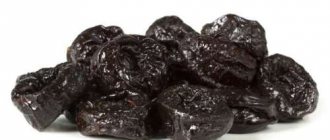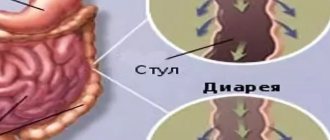Pear for digestion
Even a healthy person can experience constipation.
The phenomenon is unpleasant, but it is possible to cope with it. For this purpose, appropriate laxatives are usually taken. No less unpleasant is indigestion. Here the task is the opposite - to secure the chair. The causes of both ailments often lie in diseases of the gastrointestinal tract. With such diseases, you should definitely consult a doctor to prescribe appropriate treatment. The problem may be due to poor diet or a sedentary lifestyle.
In this situation, it is worth eliminating negative factors as soon as possible, and as an emergency and harmless aid, eat a product that has a fixing or laxative effect. Such a product is a pear.
Constipation or diarrhea
There is no secret or conspiracy here. This fruit, depending on the variety, contains more or less of the listed substances. Therefore, the pear is as effective for constipation as it is for diarrhea.
Thus, fruits containing a lot of tannins have a tart taste and “knit” in the mouth. These are the fruits of late or, as gardeners say, winter varieties. They have firm, crispy flesh and tough skin. These are the pears that should be chosen when children or adults suffer from diarrhea.
Eating fresh fruits and vegetables during intestinal infections is not recommended. Compote, pear juice or baked fruit will have a strengthening and anti-inflammatory effect, slow down peristalsis, and normalize stool.
The fruits of early varieties, on the contrary, have thin skin, sweet taste and juicy pulp. These are everyone’s favorite pears: “Lucas”, “Duchess”, “Williams”. The amount of tannins in them is small, but there is enough pectin and fiber to help with constipation.
If you are prone to constipation, include these sweet juicy fruits in your diet. Keep in mind that the fiber is rich in the peel, not the pulp. Therefore, instead of peeling the peel, rinse the fruit thoroughly under running water.
What do we know about the pear?
Pears are a very popular product among fruit lovers. Only apples are ahead of them in popularity. Leading scientists have long proven the benefits of these fruits and food products made from them.
Pear contains less acids than other fruits, so it does not irritate the intestinal microflora.
Today on the market you can find several of the most popular varieties of pears:
- Chinese. The fruit of this pear is firm, crunchy, but not very sweet.
- Duchess. It is quite easy to recognize this variety, because it is distinguished by its bright yellow color and the presence of a pink barrel. This fruit has a sweet, honey-like taste to the pulp.
- Williams. This variety is the most popular and beloved among customers. Its fruits are juicy, soft and deep green in color.
- Conference This fruit has an unusual brown-green color. Pears are juicy, firm, and therefore perfect for baking. When heat treated, they do not fall apart, but retain their original shape.
Effect on stool
Pears contain many components that affect intestinal function. The effect on colon motility depends not only on the plant variety, but also on its maturity. Thus, pears that ripen late may contain components that have an astringent effect. These fruits are best used for preparing fruit dishes and drinks for people suffering from various intestinal pathologies.
Many mothers worry about the effect of pear on the child’s intestinal function, because stool disorders are most common in children. A baby who does not eat properly may develop constipation. Children's specialists note that problems with stool are easier to prevent than to treat them later.
In order for the intestines to work “clockwise”, the diet must be balanced. This means that there must be a balance between foods that weaken and strengthen. With the correct diet, the risk of problems with stool is significantly reduced.
Abnormal bowel movements can develop not only in children, but also in adults. Constipation is also quite common in people in adulthood and old age. The fact is that with age, intestinal function changes. The motor function of the colon decreases, which leads to the development of constipation.
Read also: Pear - Simply Maria: description of the variety, photos, reviews
In order to improve contractions of the large intestine, you should definitely include fresh fruits in your diet. They contain plant fiber, which stimulates the peristaltic movements of the digestive system. Pears also contain plant fibers that affect the functioning of the colon. In addition, the aromatic fruits contain active components that promote the production of digestive juices. The more of this secretion is released, the better the digestion processes proceed. Digestive juice also contains substances that can have a mild stimulating effect on the large intestine, which leads to normalization of stool.
You can eat pears not only to treat constipation, but also to prevent the development of this intimate problem. At the same time, it is better to eat fragrant fruits fresh. If desired, you can make delicious salads and desserts from pears. Such aromatic fruit dishes will not only help to significantly diversify your diet, but will also help normalize the functioning of the digestive system.
The amount of plant fiber in fruits can be slightly reduced. This requires heat treatment. Baked and boiled fruits contain less fiber. There is also some plant fiber in the fruit decoction prepared from these fruits.
So, for people who have a tendency to have frequent bowel movements, it is better not to eat fresh fruits, but to drink pear compotes or jelly. Such drinks contain less plant fiber, which means the effect on the intestines is significantly reduced. People suffering from various intestinal diseases should consume pears with extreme caution. If you have pathologies accompanied by frequent diarrhea, you should not eat fresh fruits. In this case, it is better to choose baked fruits or drink pear drinks.
Fresh fruits contain components that can provoke an exacerbation of gastritis. For those who have this pathology, especially if it has an uncontrolled course, it is better to refuse to eat such fruits. During the period of unstable remission, you need to drink pear compotes prepared without adding large amounts of sugar.
Pears also contain active components that help lower blood cholesterol. Typically, lipid metabolism disorders occur in older people, and they also often develop constipation. In order to cope with both pathological conditions at once, you should include pears in your diet. It is better to eat the fruits fresh.
When eating pears, you should remember that a large amount of plant fiber is contained in the peel. Those who have a tendency to have frequent bowel movements are recommended to eat the fruit without the skin. If you are constipated, it is better to eat pears without peeling them.
How to use fruit for laxative effect
The fruit contains a lot of fiber, which makes it incredibly healthy. Eating fresh pears has a laxative effect. This is due to the irritating effect of fiber on the intestinal walls. It causes increased secretion of digestive juices.
Pear juice has a specific effect on the food bolus in the stomach, softening it and enlarging it, so that it moves faster through the gastrointestinal tract. This is what causes its laxative effect.
The fiber that almost entirely consists of the pear fruit is more effective than that found in the apple. Its effect is softer. If you consume the fruit little by little, the functioning of the gastrointestinal tract is normalized, and excess substances are removed from the body.
For the fruit to act as a laxative, you need to eat it raw, and choose ripe, juicy specimens.
To achieve a laxative effect, pears are eaten raw, either as whole fruits or as freshly squeezed juice. Give preference to durum varieties, they have more coarse fiber and less sugar.
To get a laxative effect, juice and fruits must be consumed after meals, waiting at least half an hour. Pear is contraindicated as an independent meal; it should not be eaten on an empty stomach. Doctors explain these tips as follows: the fruit, entering the stomach, stimulates the production of pancreatic enzymes.
If half an hour has passed after eating, most of the food eaten has left the stomach and entered the small intestine. If you eat a pear at this time, enzyme activity will increase and the food will be processed faster and better. If you eat the fruit on an empty stomach, enzymes are released into the empty intestines, the mucous membrane will be irritated and the walls will be digested for lack of food. Over time, this phenomenon will cause serious diseases of the digestive system.
Despite the high water content in the fruit - 85 g per 100 g of fruit, some doctors advise drinking pears with water. For a laxative effect, cellulose must swell in order to irritate the intestinal walls, clearing it of feces. Active fruit acids have an aggressive effect on the stomach of a person suffering from diseases of the gastrointestinal tract - gastritis, ulcers; their concentration should be reduced with water.
If a person suffers from chronic constipation, one should not rely only on the laxative properties of the pear. As an emergency, you should give preference to medicinal laxatives or an enema, fecal retention leads to intoxication of the body. Regular constipation negatively affects the condition of children, adults, and women during pregnancy.
Energy value
The described fruit has a low energy value, its calorie content per 100 g of product is only 42 kcal, so it is often recommended to include pears in the diet of those losing weight. Protein in fruits - 0.4 g, water - 85 g, carbohydrates - 10.4 g, fat - 0.3 g. Dietary fiber in pears is 2.8 g, and organic acids are no more than 0.6 g.
Sources
- https://fermilon.ru/sad-i-ogorod/derevya/grusha-slabit-ili-krepit-stul-u-vzroslogo.html
- https://lechenie-zapora.ru/narodnye-sredstva/grusha-ponos-zapor
- https://gastrodoktor.ru/mozhno-li-pri-ponose-grushu.html
- https://zaporx.ru/narodnye-sredstva/grushi-pri-zaporakh.html
- https://www.syl.ru/article/203477/new_grushi-slabyat-ili-krepyat-vyiyasnyaem-osobyie-svoystva-frukta
- https://kishechnikok.ru/lechenie/slabitelnoe-dlya-kishechnika/grushi-slabyat-ili-krepyat-kishechnik.html
- https://medgastro.ru/ponos/mozhet-grush-byt-ponos/
- https://PishcheVarenie.ru/kishechnik/diet/grusha-dlya-kishechnika.html
[collapse]
What beneficial elements are contained in pears?
In addition to the fact that the pear is very tasty, it represents a whole range of beneficial properties contained in the shell of the fruit. Here are just a few points that you definitely need to know about it:
- the vitamins A, C, D and group B contained in it allow pear lovers to eat several pieces a day and thereby receive a charge of substances necessary for the body;
- The beneficial components of this fruit include pectins, acids, phytoncides, and antioxidants. Thanks to them, the pear is perfectly absorbed by a healthy body and strengthens the immune system;
- Eating pears significantly reduces blood cholesterol levels. Patients with atherosclerosis should introduce fruit into their daily diet.
What happens in the intestines after eating a pear? The effect of fruit on the digestive organs depends on the method of its preparation. If you make dried pears and cook a compote or decoction from it, you can get a remedy that copes well with intestinal disorders. This positive effect on the intestines is due to the tannin present in the fruit.
In addition, fresh, unprocessed pears contain fiber, which reduces the level of “bad” cholesterol and normalizes the intestinal microflora. With regular consumption of this fruit, intestinal motility improves, and due to the bactericidal properties of pears, the number of pathogenic bacteria in the intestines decreases.
- Pear fruits contain a huge amount of vitamins, which perfectly improve immunity, helping to fight various infections and viruses. In addition, fruits are good for the functioning of internal organs - the liver and kidneys.
- People who suffer from heart disease are recommended to include pears in their diet; they contain a large amount of fiber.
- Many diabetics wonder if they can eat this fruit? Despite the very sweet pulp, pears contain less sucrose and fructose than, for example, apples.
Fastening action
Bergamot, especially its late harvest, right before the autumn frosts, is rightfully considered the record holder among pear fruits in the matter of fixing and getting rid of loose stools.
That is, the same type of bergamot that is placed in shavings or rice husks for storage during the winter months. This winter bergamot contains the largest amount of tanning (astringent) substances, which reduce peristalsis and weaken the activity of intestinal motility.
Tanning (astringent) substances, or tannins, are phenolic high-molecular compounds that impart astringency to the taste of fruits. The physiological mechanism of action on the body is expressed in limiting the influence of pathogenic flora, if it is present in the intestines, reducing and even neutralizing putrefactive processes, if they already take place, and at the local level, when affecting the mucous membrane, they inhibit peristalsis, slowing down or even temporarily stopping output of feces.
Quite a bit behind bergamot are varieties such as the juicy and crunchy Chinese pear at any stage of ripening and the similar hard Packham pear.
Tannins can work like antibiotics. And, like antibiotics, they inhibit intestinal microflora, including beneficial ones - which, in case of overdose, will also cause intestinal upset, but perhaps with the opposite sign.
To stop diarrhea, it is not necessary to use any special or late varieties of pear. You can take any variety and cook jelly from them. In combination with a small amount of sugar and starch, inflammation on the gastric mucosa will subside, which can also cause loose stools.
For diarrhea
The situation may be the opposite - a person may suffer from diarrhea. In this case, you need a remedy that strengthens. If diarrhea occurs due to an infectious disease, which is not uncommon, you should consult a doctor and undergo treatment with medications.
But the problem caused by poor nutrition can be solved with pear jelly, or by consuming the fruit in dried form. This pear is strong.
This can be explained by the presence of tannins and tannins in the fruits. These substances also have antibacterial properties and heal micro-wounds on the intestinal walls.
DETAILS: How to make lazy cabbage rolls in the oven with sour cream?
Thus, the effect of the fruit on the body depends on its condition.
Principles of nutrition
A diet after diarrhea in an adult consists of following some rules according to which the intestinal microflora can be normalized.
The basic rules include recommendations regarding food and how to eat it:
- thorough hand washing;
- use only clean dishes.
After diarrhea, an adult patient is not recommended to visit cafes and other catering establishments, as the quality of food may vary. At the same time, the gastrointestinal tract organs may react negatively to it.
A diet after diarrhea in an adult patient and a child requires the use of only high-quality products in the cooking process.
Expired fermented milk products are contraindicated. If you eat them, you can cause fermentation, causing a relapse of poisoning, diarrhea, and vomiting.
They're weakening
EggplantApricotsCookies (made from premium flour)AvocadoPomegranatePineappleFatty meatOrangesMashed potatoesBananas (overripe, soft)Meat broth (strong)CherryMint teaPeasBananas (underripe, green)Pears (overripe, soft)Pears (underripe, hard)MelonOak bark decoction Cabbage (times) boiled)Rice (white, not washed)KiwiChamomile teaStrawberriesMuffin (especially with rich cream)ZucchiniBread (white from premium flour)Seaweed (kelp)PersimmonsTomatoesTeaBeansBlueberriesCherry ChokeberriesPrunesChocolateSpinachApplesauce (precisely puree!)Apples (whole)Fermented milk products, no more than 1 day have passed since the production date, are weakened. Fermented milk products, more than 2 days have passed since the production date, are fortified. Any fermented milk products for intestinal disorders should be consumed with caution.
Milk promotes stool retention; it should be limited if the child has constipation.
Grapes promote gas formation and fermentation in the body. If any digestive disorders are present, it should be excluded from the child’s diet.
The main thing is to drink more water for any intestinal disorders, be it constipation or diarrhea.
And, of course, tell your local pediatrician or contact a pediatric gastroenterologist if your child has problems with bowel movements. After all, constipation and diarrhea can be symptoms of a wide variety of diseases. The doctor will prescribe medications or bifidobacteria to help your baby's intestines.
People still argue about the usefulness of pear juice and the effect it can have on the human body. Many people claim that if you eat a few pear fruits, you can stop diarrhea and intestinal upset. Others argue that the opposite effect will occur, and that the pear can be used as a mild laxative. But who is actually right - does the pear weaken or strengthen the chair?
The healing properties of the pear are simply amazing, and the benefits it brings are simply enormous. The effect of consuming this fruit depends on the time of ripening of the fruit and its variety:
- To obtain a laxative effect, fruits of early varieties are suitable, since they have a low content of tannins, which have an astringent effect.
- If the chair needs to be fixed, it is better to use late varieties. The arbutin they contain will help you get the desired effect. Therefore, to the question of whether the pear is strong, we give a positive answer. The main thing is to choose the right type of fruit.
Apples, like pears, are a rather controversial product, since depending on the method of their use and type, they can have both a laxative and strengthening effect on the body:
- If you eat a few fresh apples on an empty stomach, you can achieve a laxative effect, because malic acid stimulates the intestines.
- But applesauce and baked fruits, on the contrary, have a strengthening effect.
Today there is no consensus on the effect of pear juice on human stool. According to the observations of the majority, the pear becomes stronger and after eating the fruit, diarrhea and intestinal upset stop. Others, on the contrary, insist that this fruit is laxative and use it as a mild laxative.
If you have stool retention, it is recommended to consume early variety fruit, since it contains tannins in minimal quantities, and it is they that have an astringent effect. If you are worried about frequent loose stools, then to fix it, you need to eat a late variety fruit, since it contains arbutin, which allows you to achieve the desired effect.
That is why specialized experts do not give a definite answer regarding the effect of pears on the intestines, since everything depends directly on the selected fruit, which must be chosen correctly. You should pay attention to the peel; in early fruit it should be soft, and in late fruit, on the contrary, it should be hard. In addition, the late fruit has a tart, astringent taste.
DETAILS: The most unpretentious indoor plants with photos and brief descriptions
On the Internet you can still find debates about whether a pear weakens or strengthens. Some are confident that the pear strengthens, others say the opposite. So who to believe?
It turns out there is no clear answer. A fruit can produce both effects, depending on the form in which it is consumed.
Nausea, poor health and diarrhea are often caused by problems with the gastrointestinal tract.
They can develop against the background of chronic diseases. To quickly eliminate diarrhea, you can include foods that strengthen stool in your diet.
To cure diarrhea, it is recommended to follow a certain diet. It is better to give preference to fractional meals, and steam or bake foods.
This approach will help normalize stool in adults, and for a child, boiled food is much healthier than fried food.
Pay attention to the list of products that help strengthen stool:
- Lean meat. Boiled or steamed beef, rabbit and chicken will help eliminate diarrhea.
- Porridges and decoctions. Buckwheat, rice and oatmeal cooked in water help to strengthen the stool.
- Low-fat fish varieties. You can choose both river and sea fish. During cooking, you should not add seasoning - it is better to bake the fish in the oven.
- Dairy products. Low-fat cottage cheese normalizes digestion and prevents diarrhea.
- Boiled vegetables. Potatoes, carrots and boiled corn will become not only healthy, but also tasty. Please note that you should not feed children corn often - it can cause indigestion and constipation.
- Puree soups. Thin-type first courses are well suited for normalizing infant digestion. It is better to cook them in low-fat, weak broths with the addition of dried bread.
- Boiled eggs. This food product is known for its strengthening properties. If you have gallbladder disease, you should limit its use.
- Pomegranate. The juice of pomegranate fruits, as well as an infusion from its peel, soothes the stomach and can normalize stool. It must be taken 3 times a day.
- Products containing tannins. These include strong black tea and black currant. Tart persimmon can also help with this problem. The partitions of walnuts have astringent properties, and the kernels themselves strengthen.
- Fruits. A green unripe banana, as well as berries such as blueberries, will relieve the human body of loose stools.
- Herbal infusions. Herbs such as chamomile and oak bark can help with this problem.
- Fruit puree. When breastfeeding, as well as after starting to introduce formula into the baby’s diet, it is worth giving fruit puree to quickly absorb and consolidate the stool. Many mothers are interested in how the pear affects the stomach: does it weaken or strengthen the stool? Experts say that pear puree, as well as an apple introduced into complementary foods, will help avoid diarrhea. In addition, these dried fruits can cause constipation.
- Grape. Sweet bunches of any color, as well as raisins, perform a fixative function in digestion.
To know when it is necessary to include the specified list of products in the diet, it is worth understanding the norm indicators.
For example, when breastfeeding, it is considered normal if the baby empties the stomach 3 to 10 times a day.
In bottle-fed children, this figure is 2-3 times a day. In children 1-2 years old, stool is normally 1 time per day, and in older children - at least 1 time every 2 days.
Easing the stomach is sometimes as necessary as strengthening the stool. Constipation in children is not uncommon.
At these moments, the unknowing mother begins to feed the baby what the relatives advise, who are not always right.
In order not to spoil the digestive system, you should know which drinks and foods can have a laxative effect.
Note! Many people are interested in the question: does melon weaken or strengthen the stool?
The answer is simple - thanks to its special properties, this berry can relax the stomach. Therefore, if you have problems with constipation, eat this sweet yellow product.
When the intestines are weakened, their peristalsis increases, causing the ability to quickly absorb foods to be temporarily lost.
Ingredients containing fiber help to effectively cleanse the intestines. These include grains and plant foods, such as millet porridge and bran.
| Product category | Kinds |
| Beverages | Kissel made from natural juices can relax the stomach. It's better to make it yourself than to buy a store-bought version. |
| Coffee does not have pronounced properties to cause the desire to empty the stomach. However, due to individual characteristics, with proper nutrition, the effect will be positive | |
| Boiled rose hips, made from seeds and berries, will help solve constipation problems | |
| Milk can cause loose stools even with severe constipation | |
| Fruits | Figs will help in treating intestinal obstruction. By consuming it daily you can forget about constipation forever. |
| A peach grown in favorable regions will help the child empty his intestines. This solution is suitable for mothers of babies experiencing colic and bloating. Complementary feeding in the form of peach puree will become a panacea | |
| Fresh apricots will have a laxative effect if consumed unripe. Dried apricots will help solve the problem in the same way as prunes and dates. Fresh plums have the same properties, but you need to use them in moderation | |
| Berries | Watermelon and its juice are useful for people suffering from constipation. Please note: if you eat the pulp located close to the crusts, there is a chance to cleanse the intestines |
| Ripe blackberries have laxative properties. It is not recommended to use it in large quantities for people suffering from high stomach acidity. | |
| Vegetables | Pumpkin has a dual effect on the intestines. Depending on the individual characteristics of the body, it can strengthen or weaken the stomach |
| Broccoli is given to infants as complementary foods and to relieve bloating. |
DETAILS: The best pear varieties for central Russia: review
Benefits for the gastrointestinal tract
Let's look at how a pear affects your well-being. Its fruits contain a whole complex of vital elements. They are rich in organic acids, tannins, plant enzymes, and antioxidants. Ripe fruits are a source of a whole complex of vitamins (C, E, K, PP, group B) and minerals (iron, iodine, zinc, phosphorus, copper, cobalt). Their pulp contains phytoncides, flavonoids, glucose, and arbutin. It is well absorbed by the body, strengthens the defenses, and is a mild diuretic.
Beneficial properties can be used in the treatment of many diseases. If you regularly eat pears, you will soon notice positive changes in the functioning of internal organs and systems:
- metabolism is activated;
- Enzyme formation is stimulated;
- the production of good cholesterol will improve;
- bones will be strengthened;
- immunity will be strengthened.
Many people are interested in how the fruit affects the digestive processes: as a laxative, or causes constipation. Their effect is determined mainly by the high content of organic acids, fiber and tannins. Sometimes the pears are weakened, sometimes they are strengthened. It depends on the form in which they are used. In different situations, diametrically opposite effects from their use are possible. The individual reaction of the body also matters.
How long does it take to digest a pear?
Pears, like any fruit, are a source of fructose - easily digestible sugars. The fruit on an empty stomach leaves the stomach within half an hour after eating it, after which the fruit undergoes enzymatic breakdown and absorption of nutrients into the blood. The entire path of the fruit from entering the body to the toilet depends on the amount of food consumed, the state of the digestive system, and the presence of diseases of the digestive system.
Coarse fiber enhances intestinal motility; raw fruits leave the body faster than heat-treated ones. If you eat according to the rules, without combining them with heavy foods, and eating them half an hour after the main meal, there will be no problems with digestion. If you drink a glass of water, all the beneficial substances that dissolve in the liquid will be absorbed even faster. Spent waste and toxins will leave the body faster. Pear lovers who tend to have loose stools should not drink the fruits.
Different foods are absorbed by our bodies differently. When we consume food, the stomach needs to digest it, break it down and get the maximum benefit from it.
The body begins to digest food while it is still in the mouth. The process involves teeth and saliva. Food moves further along the esophagus, and then in the stomach it is exposed to gastric juices. After this, the food enters the intestines, where the process of digestion continues. Through the intestinal walls, all beneficial substances from food enter the blood, are filtered by the liver and are absorbed by the body.
So how long does it take to digest a pear? The whole process, including the residence of food in the stomach, takes 40 minutes.
Baked
It is recommended to eat baked apples rather than raw ones for diarrhea. Every day you can include no more than 400 g of oven-cooked fruits in your diet.
To maximally saturate the body with useful microelements and minerals, it is worth combining this sweet fruit with other foods. Bananas are often used for this to effectively restore potassium levels.
This fruit should be eaten carefully; it must be introduced into the diet in small portions. Bananas are not for everyone and may cause symptoms such as bloating and gas.
- Classic baked apples for diarrhea are without sugar, but if necessary, you can add a spoonful of honey, or sprinkle the recipe base with cinnamon and a pinch of powdered sugar. For a culinary masterpiece with diarrhea you will need 300 g of fruit (2 pcs.) and 1 tsp. honey Wash the fruit, remove the peel and core (leaving the bottom). Pour 1 tsp into the resulting cavity. boiled water and place the fruits on a baking sheet in the oven. Bake at 150-180 degrees for at least 10 minutes.
- Baked apples with banana. To prepare, you will need to rinse and core 4 fruits, chop bananas (2 pieces) finely and place them inside, add 1/2 tsp. Sahara. The baking tray needs to be greased with butter, baked at 180 degrees for half an hour, after which you need to sprinkle the recipe with fruit nectar, and cook the baked dish for another 15 minutes.
- If you don’t have an oven, you can take a small saucepan, pour 150 ml of water into the bottom, put 3-4 washed apples, and simmer for 10-15 minutes.
- A decoction of rice and apples for diarrhea is one of the most effective remedies for treating loose stools. To prepare the recipe you will need 3 tbsp. l. rice cereal and 1/2 cup sliced and peeled fruit. Pour all the ingredients into a liter of water, boil and leave for 1 hour. Strain and drink 150 ml on an empty stomach 4 times a day.
Pear for a child
A newborn baby is fed with mother's milk or artificial formula. In the first case, everything that the mother consumes reaches the baby in a modified form. Experts believe that pear is a safe product. If its use does not cause discomfort in a nursing mother, then you can safely add it to the diet; there is no danger for the baby.
They start giving pears as complementary foods one of the first. Children on breastfeeding try fruit for the first time when they are 7 months old, and those who are fed artificial formulas - 5 months. An infant usually receives the fruit in the form of juice or puree.
Remember that freshly squeezed pear juice is weak, so it is better to dilute it with water or make a compote from the fruit. For puree, it is best to use boiled or baked fruits.
Rarely, but individual intolerance to the product still occurs. Therefore, if your baby complains of discomfort in the stomach after eating a pear, you should remove the fruit from the diet.
The only drawback of this sweet and aromatic fruit, according to mothers of small children, is its binding effect. Therefore, the question of whether a pear weakens or strengthens a child’s stool is very relevant for them. This is what pediatricians think about this.
- Properly prepared pear puree in small quantities is perfect for feeding a child from 6 months, provided that some other fruit has been introduced into the diet before. In this case, the pear has already undergone heat treatment, and it contains virtually no tannins. This means that the fruit will not have a significant effect on the consistency of stool.
- Fresh pears are recommended to be introduced into the diet of children starting from 1 year. In this case, you need to choose only sweet and ripe varieties, which include “Duchess” and “Williams”.
- The juice from these sweet fruits is also very useful, but it is better not to give it to children - again, from the standpoint of the question, does the pear strengthen or weaken, is it useful for the child’s digestion in this form or not. When drinking this drink, too much tannins enter the body, which causes constipation. What to do? Make compote from aromatic fruits! This will allow you to get a drink rich in vitamins and avoid problems with stool.
- There is another way to enjoy these fruits with impunity. Doctors say that if you remove the peel from pears, the harmful substances that cause constipation will remain in it. Then the fruit can be given even to small children - not forgetting, of course, about prudence.
Contraindications for use
It is not recommended for children in the first 6 months of life to eat the sweet and aromatic fruit of the pear tree, since the intestines of infants at this age are not yet fully formed and are not able to digest all the substances contained in pear juice or puree. People with ulcers and chronic gastritis should take pears with extreme caution. This ban on the fruit is due to the large amount of fiber it contains, which can irritate the intestinal walls and thereby provoke an exacerbation of the disease. Raw pears are contraindicated for elderly people, as well as for pathologies of the nervous system and paralysis.
After the pear it swells
Such a phenomenon as “flatulence,” which is popularly referred to by the simple phrase “swelling of the stomach,” occurs quite often. The reason for this in healthy people is certain foods, which include the heroine of our article.
The problem arises from the already mentioned abundance of fiber and the content of substances that can cause fermentation.
Everyone's sensitivity to them is different, so the scale of the problem is also different. Fortunately, the pear is quickly digested and the unpleasant phenomenon goes away.
When eating pears, follow the main rule: choose only fresh, high-quality fruits and this product will only bring you benefits!
- Bee bread: beneficial properties, how to take it for children for immunity
Chemical composition
The pear is a medium-sized fruit, which in most cases is similar in shape to a light bulb. This fruit is not only tasty, but also incredibly healthy, and all this is thanks to the components in its composition. Thus, the pear contains:
- organic acids;
- tannin;
- sucrose;
- routine;
- catechin;
- glucose;
- hydroxycinnamic acids;
- leukoanthocyanins;
- fructose;
- lutein;
- arbutin;
- anthocyanin pigments;
- neoxanthin;
- hydroquinone;
- vitamin P;
- flavonoids;
- B vitamins;
- phosphorus;
- copper;
- iron;
- magnesium;
- vitamin C;
- boron;
- potassium;
- sodium;
- chlorine;
- sulfur;
- rubidium;
- fluorine.
Gastric arrest: first symptoms, diet
Have you been struggling with GASTRITIS and ULCERS for many years without success?
Head of the Institute: “You will be amazed at how easy it is to cure gastritis and ulcers simply by taking it every day.
Gastric arrest or atony is a serious disruption of the functioning of the organ, which is accompanied by acute or aching pain, general malaise, loss of appetite, frequent belching, and constant discomfort. Stopping can be caused by poor nutrition, internal diseases, exhaustion of the body, malnutrition or overeating. The stomach can stop at any time, both in a small child and in adults; the first symptoms will manifest themselves in the form of a dull pain and lack of appetite.
Our readers successfully use Monastic Tea to treat gastritis and ulcers. Seeing how popular this product is, we decided to bring it to your attention. Read more here...
If your stomach is upset, you need to undergo a comprehensive study to find the cause, undergo a symptomatic course of treatment, change your diet, and also give up the bad habit of snacking on the go.
The digestive system works normally when the body receives well-chewed food of normal temperature and acidity. The motor activity of the organ can be impaired if the pyloric region, which is responsible for peristalsis, is damaged. A decrease in the tone of the muscle layers leads to the fact that the stomach stops its motor activity until the cause is eliminated.
First signs
Determining what the stomach is worth is quite simple, since from the first minute a person begins to suffer from aching pain in the area of the organ. The patient takes a forced position, holds his hands on his stomach, and tries to lie on his side. The pain is so unpleasant that dizziness and nausea begin. If the reason for the stop is an infectious process, the patient’s body temperature rises and intoxication develops. The appetite disappears or the person begins to eat very little, and the child has no desire to eat at all.
- when pressing, you can feel the absence of pulsation;
- there is an unpleasant odor from the mouth, belching;
- body temperature rises, the person turns pale;
- light physical activity quickly exhausts you, shortness of breath appears;
- constant feeling of heaviness in the stomach;
- a feeling of fullness even in the absence of food.
When the organ has become, the patient can immediately determine the diagnosis, but contacting a specialist is necessary for pain relief and the start of the organ.
Read about flatulence (bloating) with the development of pancreatitis in this material...











